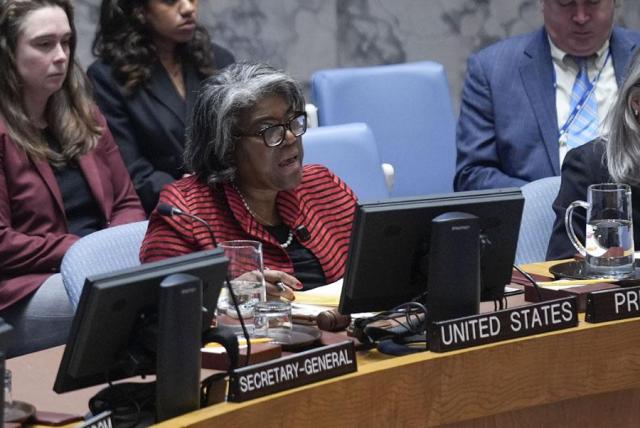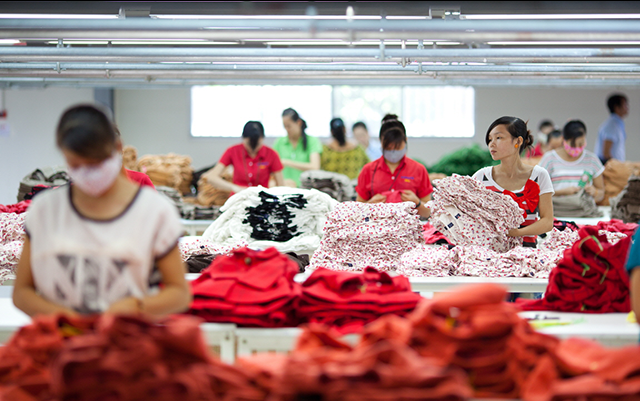
"Russia may be close to accepting North Korea's nuclear weapons program, reversing Moscow's decade long commitment to denuclearize the Korean Peninsula," said U.S. Ambassador to the United Nations Linda Thomas-Greenfield during a Security Council meeting in New York on Wednesday.
"We believe that Moscow will become more reluctant not only to criticize Pyongyang's development of nuclear weapons, but also further obstruct passage of sanctions or resolutions condemning North Korea's destabilizing behavior," she added.
Pointing out the growing military ties between Moscow and Pyongyang, she accused Russia of violating UN resolutions that prohibit member countries from receiving "any arms related materiel, arms training or assistance from [North Korea] or providing them" to North Korea.
She also revealed her assessment that North Korea has supplied "at least six million heavy artillery rounds along with well over 100 ballistic missiles" to Russia. "This marks the first time North Korean troops have participated in large-scale ground combat operations in more than 70 years and the first time they have done so outside the Korean Peninsula," she explained.
Concerns over North Korea's deepening ties with Russia were also raised during a conference hosted by the Center for Strategic and International Studies (CSIS) the same day.
U.S. Assistant Secretary of Defense for Indo-Pacific Security Affairs Ely Ratner said the relationship between Pyongyang and Beijing "has substantially eroded economically, politically, diplomatically."
He speculated that North Korea "has realized it is much less reliant on [China] for the kinds of things that can it can get from Russia now," which may have caused a rift with its traditional ally.
Meanwhile, the U.S. Department of Defense estimated in its latest report that China "has surpassed 600 operational nuclear warheads in its stockpile as of mid-2024 and will have over 1,000 operational nuclear warheads by 2030, much of which will be deployed at higher readiness levels." The report also wrote that China "will continue growing its force through at least 2035."
Copyright ⓒ Aju Press All rights reserved.





View more comments